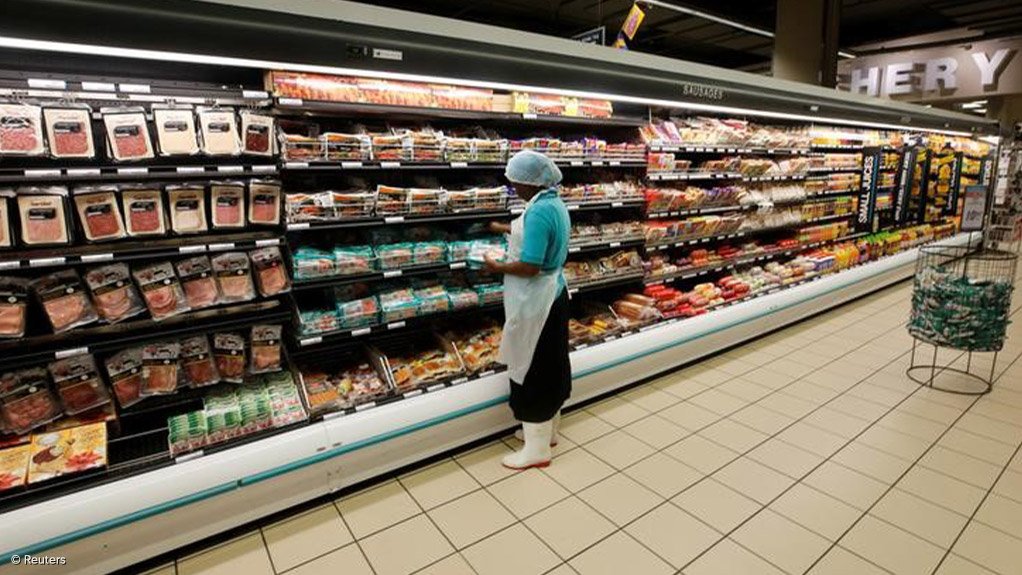South Africa’s gross domestic product (GDP) for 2021 increased by 4.9% in 2021, compared with a contraction of 6.4% in 2020.
Statistics South Africa (Stats SA) statistician-general Risenga Maluleke on March 8 said the growth was the result of the country moving out of the Covid-19 pandemic environment in 2021.
However, despite growing at a rate of 4.9%, he highlighted that the economy was still sitting at a similar level to that of the third quarter of 2017.
Meanwhile, GDP increased by 1.2% quarter-on-quarter in the fourth quarter of 2021.
Expenditure on real GDP increased by 1.3% in the quarter.
Household final consumption expenditure increased by 2.8% in the fourth quarter, contributing 1.8 percentage points to total growth. The highest growth rates were reported for expenditures on durable and semi-durable goods.
In the fourth quarter of 2021, the personal services industry increased by 2.7% quarter-on-quarter, contributing 0.4 of a percentage point to GDP growth.
Increased economic activities were reported for community and other producers.
The manufacturing industry increased by 2.8% in the period, contributing 0.3 of a percentage point to GDP growth. Eight of the ten manufacturing divisions reported positive growth rates in the fourth quarter.
The petroleum, chemical products, rubber and plastic products divisions made the biggest contributions to the increase in the quarter.
The food and beverages division and textiles, clothing, leather and footwear division also made considerable contributions to growth, Maluleke said.
The trade, catering and accommodation industry increased by 2.9%, contributing 0.3 of a percentage point to GDP growth.
Increased economic activities were reported for retail trade, motor trade and catering and accommodation services.
The agriculture, forestry and fishing industry increased by 12.2% and contributed 0.3 of a percentage point to GDP growth. The increase was mainly owing to the increased production of animal products.
The transport, storage and communications industry increased by 2.2%, contributing 0.2 of a percentage point. Increased economic activity was reported for land transport and transport support services.
The main detractors from growth were the electricity, gas and water industry (owing to reduced consumption), while mining experienced lower production, particularly for iron ore, gold and coal.
COMMENTARY
PPS Investments portfolio manager Reza Hendrickse says that overall, 2021 was a strong year, with full year GDP growth reaching 4.9%.
"Much of this was due to 2020’s low base from which to rebound, while the favourable global growth backdrop was also a tailwind. Despite this, the size of the SA economy remains below pre-COVID levels. Going forward the outlook is more muted, with a return to trend growth, which is closer to 2% per annum," she notes.
Hendrickse says that the outlook for growth is stable, and the economy should continue to heal as the pandemic effects fade.
"Although monetary policy is tightening, conditions remain accommodative as we transition to more normal policy rates amid benign local inflation. The fiscus is also on a better footing, given improved tax collections, as well as gradual reform. The main risk to growth currently is the geopolitical backdrop, where the conflict between Russia and Ukraine has the potential to impact global growth, as well as the inflation outlook, particularly given the spike in energy and agricultural commodity prices.
For now, we continue to view South African growth assets as being relatively cheap, being priced to deliver good returns going forward. As a result, our multi-asset portfolios are overweight South African equities as well as foreign, while also retaining a meaningful weighting in South African government bonds, with their high yields building in a large risk premium. We continue to favour growth assets in general, provided the situation between Russia and Ukraine can be contained," indicates Hendrickse.
Non-profit organisation Trade & Industrial Policy Strategies says that the South African economy is recovering faster than expected from the pandemic, with relatively strong GDP growth over the past quarter and past year.
It acclaims that it is a very positive outcome for the economy and bodes well for job creation, unless the international economy turns down or Covid-19 spikes uncontrollably again.
North West University Business School Professor Raymond Parsons says that to make tangible progress on both the employment and tax revenue fronts, the country needs to progressively aim for 4% to 5% GDP growth and do what is urgently necessary to achieve it through greater collaboration with the private sector.
He adds that South Africa must rely now on new and updated economic factors, not on a 'once-off' rebound, if it wants to maximize the number of jobs created at any given growth rate.
Trade union Solidarity, says that despite the higher-than-expected economic growth it is concerned over South Africa’s increasing dependence on government spending and financial services.
Solidarity contends that the contraction of the real economy can be attributed mainly to government policy and that substantial changes are urgently needed to get South Africa back on track.
Industry organisation Agri SA chief economist Kulani Siweya says that the statistics clearly demonstrate the considerable contribution that the agricultural sector makes to the South African economy, as well as its potential to provide even greater opportunities for job creation and earning of foreign exchange through agricultural exports.
"Yet the sector’s growth continues to be hindered by declining infrastructure, amongst many other challenges," he notes.
He says that Agri SA will therefore write to National Treasury to request a briefing for the sector on the plans in place to accelerate infrastructure investment, as announced in the 2022 Budget Speech, and on the implementation of the Public Private Partnership framework.
"The sector’s performance belies the challenges that threaten to derail its continued success. The most important of these challenges is the state of South Africa’s critical infrastructure, especially roads, freight and our failing ports. This is a critical challenge South Africa must address in order to consolidate the gains of the past quarter and accelerate South Africa’s economic recovery," emphasises Siweya.
He says that the sector’s performance in the current quarter is already under threat, with its vulnerability to variables including weather and global market trends, and the current crisis in Ukraine also expected to have negative consequences. Input costs like petrol have risen significantly, and other input costs like fertiliser, of which Ukraine is an important exporter, are also expected to rise, explains Siweya.
"While conflict in Europe is beyond government’s control, national infrastructure is not," he asserts.
Industry organisation Agbiz also lauded the sector's stellar performance for the quarter, saying that is unsurprising as the 2020/2021 agricultural season was one of the best in South Africa's agriculture, with near-record harvests in some crops.
It notes that looking ahead, this year might be break away from two consecutive years of high performance.
The organisation says that heavy rains experienced at the start of the season will likely lead to a somewhat lower harvest than the 2020/2021 production season, although still above the long-term growth harvest size.
The slight yearly decline in yield, combined with a higher base of 2021, will likely contract agriculture gross value-added in 2022, it adds.
EMAIL THIS ARTICLE SAVE THIS ARTICLE ARTICLE ENQUIRY
To subscribe email subscriptions@creamermedia.co.za or click here
To advertise email advertising@creamermedia.co.za or click here













